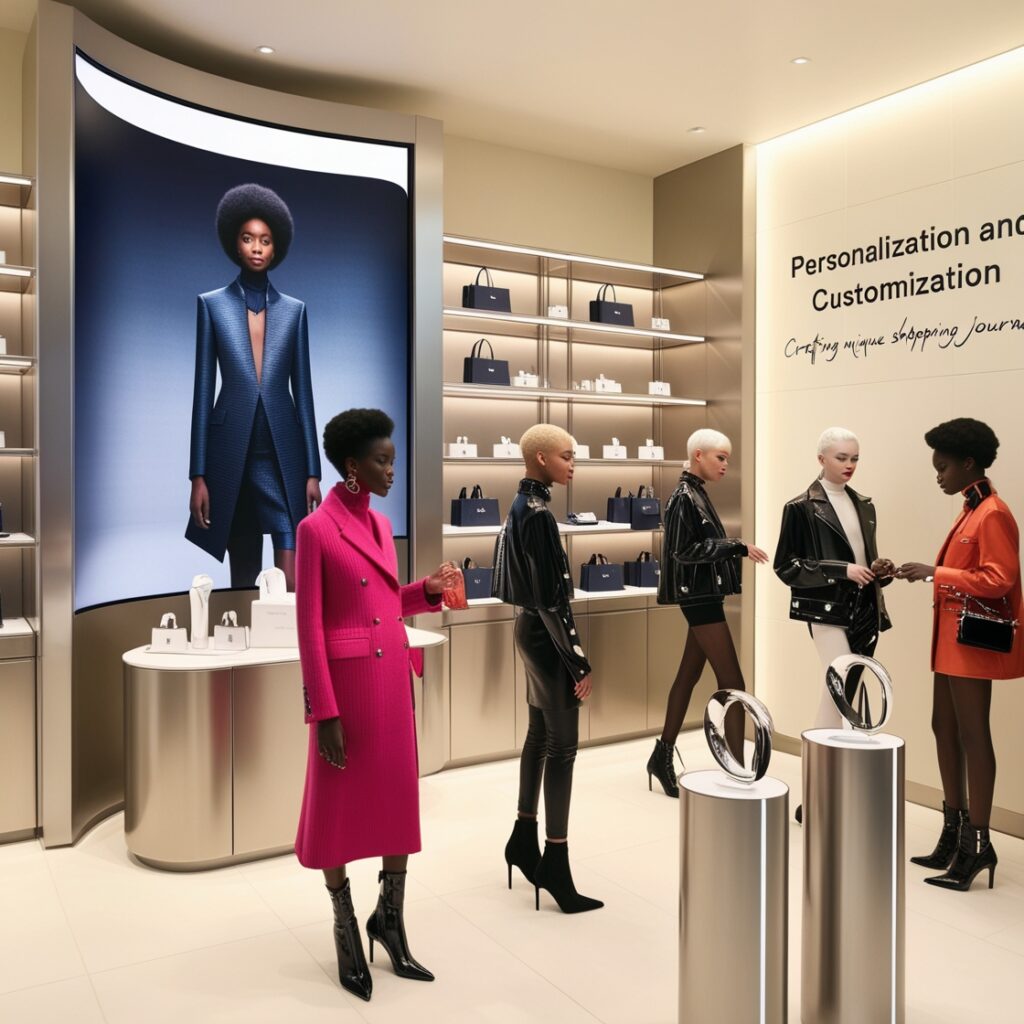Introduction
In the vast universe of e-commerce, product marketing stands as the guiding force behind success. As the digital landscape continues to evolve at a breakneck pace, adaptability becomes the cornerstone of thriving in the ever-changing market. In this exploration, we delve into the dynamic world of e-commerce product marketing, unraveling the transformative power of emerging trends that are reshaping strategies and redefining success metrics.
Key Emerging Trends
A. Personalization and Customization: Crafting Unique Shopping Journeys
The era of one-size-fits-all marketing is behind us, replaced by the rise of data-driven insights and AI-powered algorithms. This trend ushers in hyper-targeted marketing messages and product recommendations, creating interactive product pages and personalized shopping experiences. Examples such as Amazon’s uncanny recommendations and Spotify’s personalized playlists showcase the prowess of tailored content in enhancing user engagement.

B. Voice Search Optimization: Conversing with Commerce
Voice assistants like Alexa and Siri have become indispensable, leading to the optimization of product descriptions and website structures for voice queries. Conversational commerce and the ascent of AI-powered chatbots further redefine the customer experience. Voice-activated shopping through smart speakers and AI-driven customer service chatbots exemplify the seamless integration of voice in e-commerce.
C. Social Commerce and Influencer Marketing: The Social Shopfront
Social media platforms have evolved from mere communication tools to robust marketplaces. Influencer marketing takes center stage, leveraging partnerships and user-generated content. Live shopping events and interactive social media experiences, such as Instagram shopping posts and TikTok live streams, showcase the dynamic shift towards social commerce.
D. Augmented Reality and Virtual Reality: Immersive Shopping Experiences
Augmented and virtual reality technologies have revolutionized product visualization and customer engagement. Virtual try-on experiences, 3D product tours, and immersive shopping environments redefine the boundaries of online shopping. Apps like IKEA Place, Nike Air Max Try-On, and Sephora Virtual Artist exemplify the transformative impact of AR and VR on consumer interactions.
E. Sustainability and Ethical Consumerism: Conscious Commerce
Consumers are increasingly demanding eco-friendly and ethically sourced products. Transparent supply chains and sustainable packaging initiatives take center stage, aligning product features with customer ethics. Initiatives like Patagonia’s Worn Wear program and Fairtrade certifications reflect the growing importance of sustainability in e-commerce.
Impact on Product Marketing Strategies
As these trends gain momentum, product marketing strategies undergo a seismic shift:
- Personalized Communication: The focus shifts from mass messaging to tailored communication, creating deeper connections with consumers.
- Mobile-First Optimization: Prioritizing mobile accessibility and voice search readiness become imperative in a world where convenience is paramount.
- Authentic Brand Narratives: Building authentic brand stories and leveraging social proof emerge as powerful tools in capturing the hearts of consumers.
- AR/VR Technology Integration: The integration of AR and VR technologies becomes pivotal in enhancing product visualization and customer engagement.
- Sustainability Integration: Embedding sustainability and ethical practices into marketing messages resonates with the socially conscious consumer.
Challenges and Opportunities
In this transformative journey, challenges and opportunities coexist:
- Data Privacy Concerns: Striking a balance between personalization and data privacy becomes a delicate task, requiring ethical considerations.
- Technological Evolution: Keeping pace with the rapid evolution of technology and understanding evolving consumer behaviors poses an ongoing challenge.
- Measuring Effectiveness: The dynamic nature of the landscape necessitates innovative metrics to measure the effectiveness of new marketing strategies.
- Embracing Potential: Amid challenges, the potential for enhanced customer engagement and brand loyalty beckons marketers to embrace emerging trends.
Conclusion
In conclusion, the e-commerce terrain is a dynamic battlefield where adaptability reigns supreme. The key lies in embracing change, experimenting with new strategies, and continuously evolving to meet the ever-growing expectations of consumers. As we wrap up this exploration, it is evident that the future holds even more exciting trends, and the key to sustained success lies in staying ahead of the curve. In the dynamic world of e-commerce, the only constant is change, and those who navigate it with innovation and foresight will undoubtedly emerge as the trailblazers of tomorrow.

